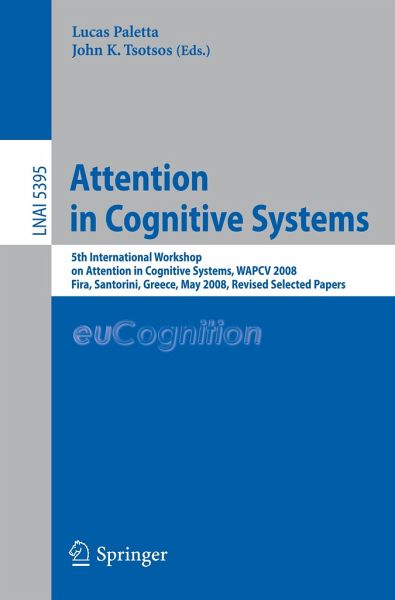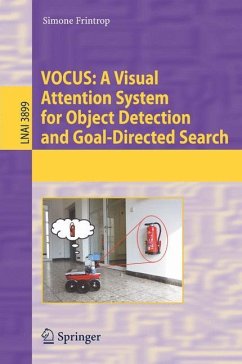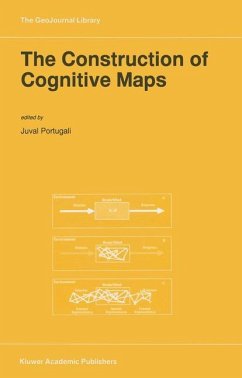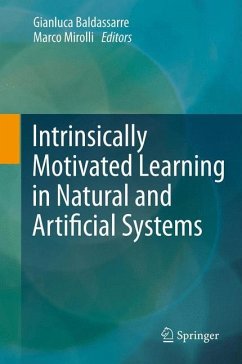
Attention in Cognitive Systems
International Workshop on Attention in Cognitive Systems, WAPCV 2008 Fira, Santorini, Greece, May 12, 2008, Revised Selected Papers
Herausgegeben: Paletta, Lucas; Tsotsos, John K.

PAYBACK Punkte
38 °P sammeln!
Attention has represented a core scienti?c topic in the design of AI-enabled systems in the last few decades. Today, in the ongoing debate, design, and c- putationalmodelingofarti?cialcognitivesystems,attentionhasgainedacentral position as a focus of research. For instance, attentional methods are considered in investigating the interfacing of sensory and cognitive information processing, for the organization of behaviors, and for the understanding of individual and social cognition in infant development. Whilevisualcognitionplaysacentralroleinhumanperception,?ndingsfrom neuroscience and exper...
Attention has represented a core scienti?c topic in the design of AI-enabled systems in the last few decades. Today, in the ongoing debate, design, and c- putationalmodelingofarti?cialcognitivesystems,attentionhasgainedacentral position as a focus of research. For instance, attentional methods are considered in investigating the interfacing of sensory and cognitive information processing, for the organization of behaviors, and for the understanding of individual and social cognition in infant development. Whilevisualcognitionplaysacentralroleinhumanperception,?ndingsfrom neuroscience and experimental psychology have provided strong evidence about the perception-action nature of cognition. The embodied nature of senso- motor intelligence requires a continuous and focused interplay between the c- trolofmotoractivitiesandtheinterpretationoffeedbackfromperceptualmod- ities. Decision making about the selection of information from the incoming sensory stream - in tune with contextual processing on a current task and an agent's global objectives - becomes a further challenging issue in attentional control. Attention must operate at interfaces between a bottom-up-driven world interpretationandtop-down-driveninformationselection,thusactingatthecore of arti?cial cognitive systems. These insights have already induced changes in AI-related disciplines, such as the design of behavior-based robot control and the computational modeling of animats. Today, the development of enabling technologiessuch as autonomous robotic systems,miniaturizedmobile-evenwearable-sensors,andambientintelligence systems involves the real-time analysis of enormous quantities of data. These data have to be processed in an intelligent way to provide "on time delivery" of the requiredrelevant information. Knowledge has to be applied about what needs to be attended to, and when, and what to do in a meaningful sequence, in correspondence with visual feedback.














